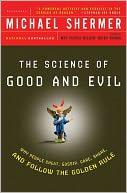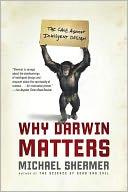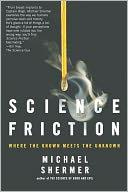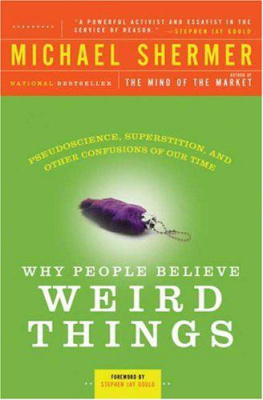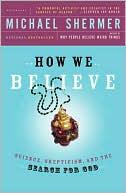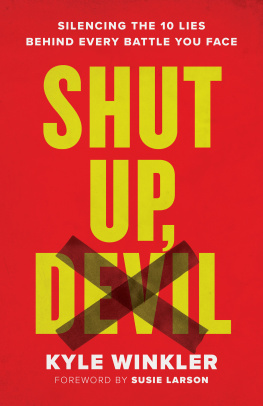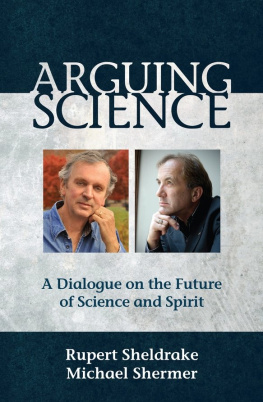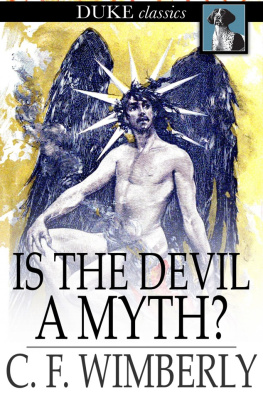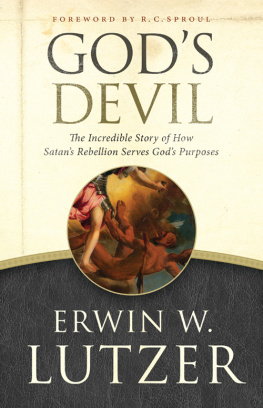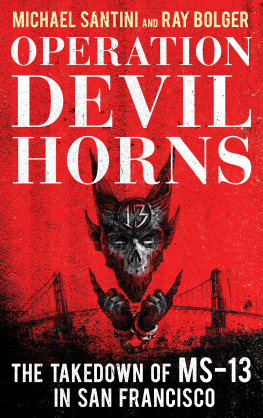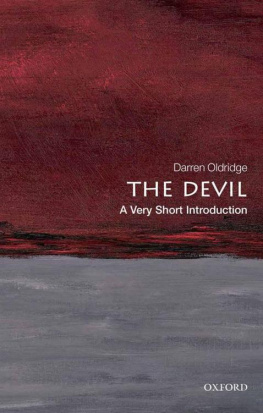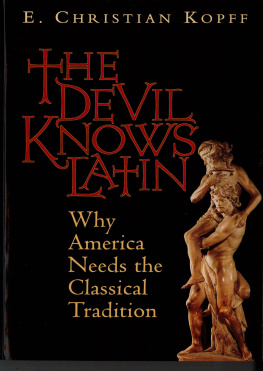Who is the Devil? And what is he due? The devil is anyone who disagrees with you . And what he is due is the right to speak his mind. He must have this for your own safetys sake because his freedom is inextricably tied to your own. If he can be censored, why shouldnt you be censored? If we put barriers up to silence unpleasant ideas, whats to stop the silencing of any discussion? This book is a full-throated defense of free speech and open inquiry in politics, science, and culture by the New York Times bestselling author and skeptic Michael Shermer. The new collection of essays and articles takes the devil by the horns by tackling five key themes: free thought and free speech, politics and society, scientific humanism, religion, and the ideas of controversial intellectuals. For our own sake, we must give the devil his due.
Michael Shermer is Presidential Fellow at Chapman University, USA, the Publisher of Skeptic magazine, the host of the Science Salon podcast, and for eighteen years he was a monthly columnist for Scientific American . He is the author of a number of New York Times bestselling books including: Heavens on Earth , The Moral Arc , The Believing Brain , and Why People Believe Weird Things . His two TED talks, viewed over nine million times, were voted into the top 100 out of more than 2,000 TED talks.
University Printing House, Cambridge CB2 8BS, United Kingdom
One Liberty Plaza, 20th Floor, New York, NY 10006, USA
477 Williamstown Road, Port Melbourne, VIC 3207, Australia
314321, 3rd Floor, Plot 3, Splendor Forum, Jasola District Centre, New Delhi 110025, India
79 Anson Road, #0604/06, Singapore 079906
Cambridge University Press is part of the University of Cambridge.
It furthers the Universitys mission by disseminating knowledge in the pursuit of education, learning, and research at the highest international levels of excellence.
www.cambridge.org
Information on this title: www.cambridge.org/9781108489782
DOI: 10.1017/9781108779395
Michael Shermer 2020
Graphs and charts courtesy of Pat Linse
This publication is in copyright. Subject to statutory exception and to the provisions of relevant collective licensing agreements, no reproduction of any part may take place without the written permission of Cambridge University Press.
First published 2020
Printed in the United Kingdom by TJ International Ltd, Padstow Cornwall
A catalogue record for this publication is available from the British Library.
ISBN 978-1-108-48978-2 Hardback
Cambridge University Press has no responsibility for the persistence or accuracy of URLs for external or third-party internet websites referred to in this publication and does not guarantee that any content on such websites is, or will remain, accurate or appropriate.
This book is dedicated to my friends Christopher Hitchens and Steven Pinker, peerless champions of liberty who have always given the devil his due for our own safetys sake.
Contents
Acknowledgments
Thank you to Janka Romero, Bethany Johnson, Kilmeny MacBride, Chloe Bradley, Phyllis van Reenen, Emily Watton, Diana Rissetto, David Repetto, Diane Kraut, and the staff at Cambridge University Press.
Thank you to Pat Linse for producing the graphs and charts for the book.
Thank you to the following publications and publishers for originally publishing the articles and essays in this volume: the New York Times , the Los Angeles Times , Scientific American , the Journal of Bioeconomics , Quillette , Skeptic , the Journal of Criminal Justice , the journal Theology and Science , The Palgrave Handbook of Philosophy and Public Policy , Palgrave, Oxford University Press, Prometheus Books, and Bloomsbury/Continuum.
Thank you to my wife Jennifer for loving me forever.
Introduction Who Is the Devil and What Is He Due?
F ire. Fire. Fire! Now youve heard it, Christopher Hitchens declared in an auditorium that bore some resemblance to a theater, the type specimen on offer by the United States Supreme Court Justice Oliver Wendell Holmes of where and when speech should be restricted. included these now famous and oft-quoted lines:
The most stringent protection of free speech would not protect a man in falsely shouting fire in a theatre and causing a panic The question in every case is whether the words used are used in such circumstances and are of such a nature as to create a clear and present danger that they will bring about the substantive evils that Congress has a right to prevent. It is a question of proximity and degree.
What were the falsely shouted utterances that Justice Holmes feared constituted a clear and present danger ? They were 15,000 fliers distributed to draft-age men during the First World War that encouraged them to Assert your rights, Do not submit to intimidation, and If you do not assert and support your rights, you are helping to deny or disparage rights which it is the solemn duty of all citizens and residents of the United States to retain. The right to what? Freedom. Freedom from what? Slavery.
Slavery? Yes. According to the distributors of the fliers Charles Schenck and Elizabeth Baer, members of the Executive Committee of the Socialist Party in Philadelphia military conscription constituted involuntary servitude, which is strictly prohibited by the Thirteenth Amendment of the US Constitution. When you conscript a man and compel him to go abroad to fight against his will, you violate the most sacred right of personal liberty, and substitute for it what Daniel Webster called despotism in its worst form, they wrote in their broadside, elaborating:
A conscript is little better than a convict. He is deprived of his liberty and of his right to think and act as a free man. A conscripted citizen is forced to surrender his right as a citizen and become a subject. He is forced into involuntary servitude. He is deprived of the protection given him by the Constitution of the United States. He is deprived of all freedom of conscience in being forced to kill against his will.
Angela Merkel) by the United States government.
Tellingly, as mission creep set in and clear and present danger expanded to include speech unrelated to military operations or combating foreign enemies, Holmes dissented in other cases, reverting to a position of absolute protection for nearly all speech short of that intended to cause criminal harm, concluding that the marketplace of ideas of open discussion, debate, and disputation was the best test of their verisimilitude. Interestingly, in an earlier and similar case that came before the court involving anti-draft protesters convicted for obstructing recruitment and enlistment services that the Supreme Court of the United States (SCOTUS) voted to affirm, Holmes dissented thusly:
Real obstructions of the law, giving real aid and comfort to the enemy, I should have been glad to see punished more summarily and severely than they sometimes were. But I think that our intention to put out all our powers in aid of success in war should not hurry us into intolerance of opinions and speech that could not be imagined to do harm, although opposed to our own. It is better for those who have unquestioned and almost unlimited power in their hands to err on the side of freedom.


